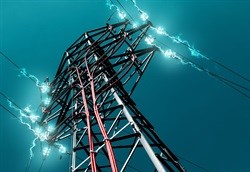Speaking ahead of the POWER-GEN Africa and DistribuTECH Africa power generation and distribution conferences to be held in Cape Town later this year, Alwyn Smith, spokesman for the South African Alternative Energy Association (SAAEA), says any fix to South Africa's power crisis will take years.
"We have left it too late. There are few, if any, solutions that could be put in place to turn the situation around in the short term. To be fair, this is not just the fault of Eskom. Eskom has been warning for years that this would happen unless more budget was allocated for maintenance," says Smith.
In the longer term, he says, energy sources such as nuclear, solar and wind power have the potential to deliver cost-effective power on a large scale. But currently, independent power producers and alternative energy plants deliver too little total capacity to significantly improve the power situation.
A nuclear reactor that could generate a significant amount of power could take nearly a decade to build. The region has an abundance of gas which could cost-effectively run turbines, he says, but this too would take time to implement. "There is no quick fix. The best we can do right now is to bite the bullet and try to catch up on overdue maintenance on our generators," says Smith.
Net metering
However, he believes that widespread net metering could alleviate the load shedding headaches facing businesses and citizens, and could go some way toward easing pressure on the national grid. Net metering allows residential customers and businesses to install solar panels at their premises and store excess power within the grid, in return for 'power credits' when needed. South Africa has been slow to move on creating an environment that allows for widespread net metering.
He speculates that this is partly due to municipalities' reluctance to give up the profits they make on reselling Eskom power. "Net metering would relieve plenty of the current issues, but now the question is: how to implement it quickly? This is not the sort of thing you can implement overnight. You need the right policies and systems in place," says Smith.
Smith foresees residents and businesses taking the initiative to go off the grid as the impact of load shedding is felt. However, while solar panels are within reach of ordinary citizens, the challenge lies in storing the solar power. "Storage - the batteries - are very costly. And currently, there are no systems and framework in place for putting excess power back into the grid." He says the NERSA call for input on a regulatory framework on small-scale renewable embedded generation is a step in the right direction, however.
Right framework
"With the right framework in place, net metering could be widely adopted quite quickly, and it wouldn't cost the government a cent. And an independent 50MW solar farm could be put in place in as little as eight or nine months," he points out.
Nigel Blackaby, director of global power conferences and chair of the POWER-GEN Africa conference, agrees. "We have seen in Europe how net metering has encouraged significant domestic solar rooftop generation, so the potential for this to make an impact in the much sunnier climate of South Africa is great."
The South African and African power sector and the role of alternative energy in South Africa will be among the issues under discussion at the POWER-GEN Africa and DistribuTECH Africa conference and expo at the Cape Town International Conference Centre from 15-17 July 2015.




























